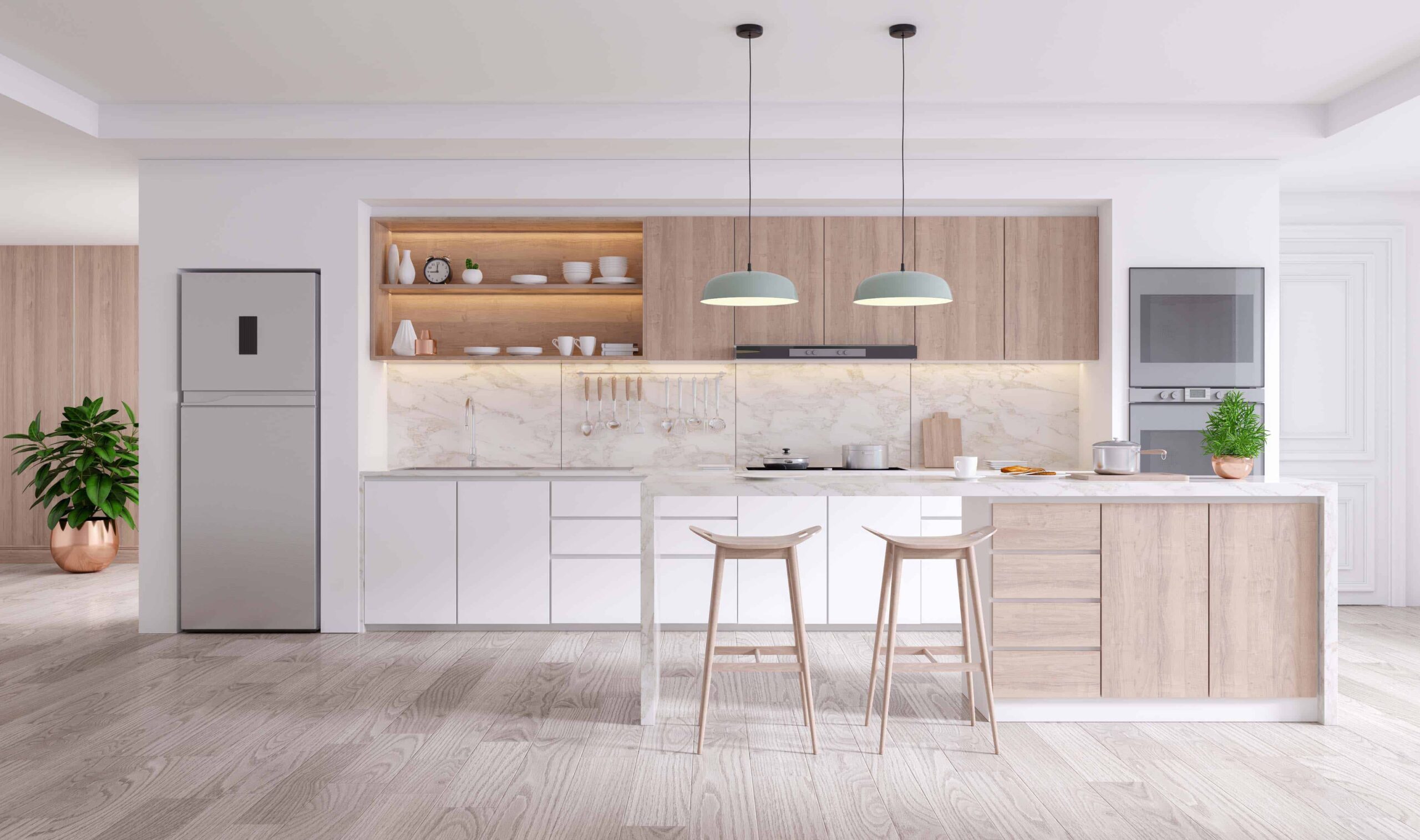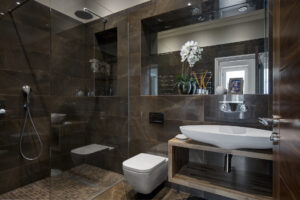
What is Firewall Technology?
Firewall technology, in the context of kitchen furniture, refers to advanced fire-resistant materials that are used to construct furniture and fixings in the kitchen. It is used to enhance the safety and fire-prevention capabilities of kitchen fixtures. These technologies are designed to mitigate the risk of fires and slow down the spread of flames, heat, and smoke in case of a fire-related incident in the kitchen.
Firewall technology can be applied to kitchen furniture by using fire-resistant materials. These materials have been specially constructed with the aim of resisting ignition and withstanding high temperatures.
Some kitchen furniture may even have fire-resistant coatings applied to their surfaces. These coatings provide an additional layer of protection that can help delay the spread of flames and heat.
4 Ways Firewall Technology Enhances Fire Prevention in Kitchens
Firewall technology plays a crucial role in enhancing fire prevention in kitchens. This is done by employing advanced mechanisms to detect, mitigate, and prevent fires.
It helps minimize the risk of fires, slow down their spread, and provide valuable time for occupants to react and evacuate.
Here are four ways in which firewall technology enhances fire prevention in kitchens:
1. Containment of Flames and Heat:
Fire retardant plywood acts as a strong barrier that is equipped with withstanding high temperatures. It thus resists the spread of flames and heat. In the event of a fire starting in the kitchen, products incorporating firewall technology help contain the fire, preventing it from rapidly spreading to other areas of the kitchen or the home. This technology thus buys valuable time for occupants to respond and for firefighting measures to be enacted.
2. Protection of Structural Elements:
Firewall technology helps fittings that are designed with that material withstand high temperatures and resist combustion. When integrated into kitchen products, such as cabinets, countertops, or walls, they offer protection to the underlying elements. This protection prevents the rapid degradation of materials due to fire exposure. This aids in ensuring the integrity of the building’s structure and minimizing the risk of collapse.
3. Delayed Fire Progression:
Firewall technology helps in delaying the progression of a fire. With this slowing down of flames and heat, firewall-equipped products create a buffer that provides valuable additional time for occupants to escape and for emergency responders to arrive. This delay is essential as the kitchen is filled with products that are easily combustible and can prove to be critical in preventing a small kitchen fire from escalating into a larger and more dangerous blaze.
4. Reduced Smoke and Toxic Fumes:
In addition to flames and heat, fires in kitchens often produce large amounts of smoke and toxic fumes. When these toxic flames or smoke are inhaled, it can cause serious concerns for the individual. Firewall materials can help reduce the emission of harmful gases and smoke, contributing to improved visibility within the kitchen. This clarity can aid evacuation efforts and facilitate the work of firefighters.
Final overview
In summary, firewall technology significantly enhances fire prevention in kitchens. By utilizing these features, firewall systems contribute to creating safer kitchen environments and reducing the potential for fire-related damages and hazards.
If you are in search of plywood for Kitchen purposes, your search ends here with CenturyPly. They have a range of firewall plywood made especially to increase fire safety by slowing down the progress of fires and minimizing their impact. It’s an important consideration for kitchens in our own homes and even commercial cloud kitchens where fire prevention is a top priority.
